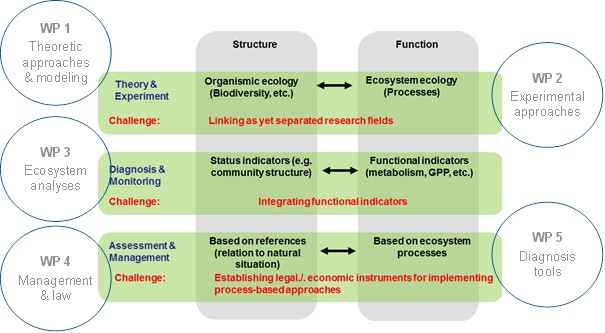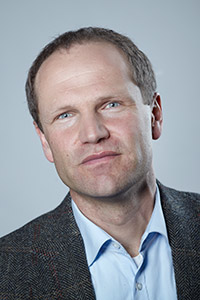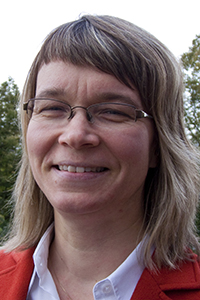IP Healthy Aquatic Ecosystems
Background and scientific challenge
The ecological status of freshwaters is often only moderate to poor as shown, for example, in the inventories made within the implementation of the European Water Framework Directive. It is actually a common phenomenon of freshwater ecosystems in human impacted areas worldwide. The reasons for this are diverse as most ecosystems today are subjected to multiple stressors rather than being affected by one single well-defined stressor. The simultaneous occurence of stressors may produce synergistic, antagonistic or additive ecological effects and can influence several levels of biological oganisation as well as their interactions. At the same time, the overall framwork is shifting in the wake of global change. Thus previously promising water management strategies can come to their limits. Against this complex background, the objective of science is to pinpoint relevant stressors and to identify ways to improve the status of waters.
Our scientific hypotheses and goals
The current practices in water management come to their limits against this background of complex cause-effect relationships and changing boundary conditions. Our basic assumption is that existing concepts have to be extended by an approach including ecosystem processes and functions. This encompasses the analysis of stressor effects on ecosystem level in a diagnosis setting as well as securing more elementary ecosystem functions as a management target. Our hypothesis is that in this way the functionality and the good condition of aquatic ecosystems can be greatly improved, even under a given residual loading of chemicals and modified hydromorphology.
Within the IP 'Healthy Aquatic Ecosystems', pathways towards an effective water management in the context of global change will be illustrated. In doing so, we consider structures (i. e. composition of biological communities, substance concentrations) but also functions such as nutrient uptake or organic matter fluxes. This approach is intended to enable a better understanding of causal chains. An interdisciplinary team of natural and social scientists works on three areas:
- the generation of natural science basis, in particular the effect of stressors on biological communities and ecological processes;
- development of new indicators and diagnostic tools for the identification of relevant stressors;
- development of management options. A challenge at all levels is the inclusion of ecosystem functions and their relationship to ecosystem structures (see figure below). Along these challenges, five different work packages have been derived:
 Visualising the IP structure
Visualising the IP structure
Contact
If you have any general questions on research topics and activities in the IP, please contact the IP speaker Markus Weitere or the IP manager Ilona Bärlund. For direct questions to the individual work packages, see the contact information on each of the WP sub-pages.

Prof. Dr. Markus Weitere
Department of River Ecology
Markus Weitere

Dr. Ilona Bärlund
Department of Aquatic Ecosystem Analysis
Ilona Bärlund
